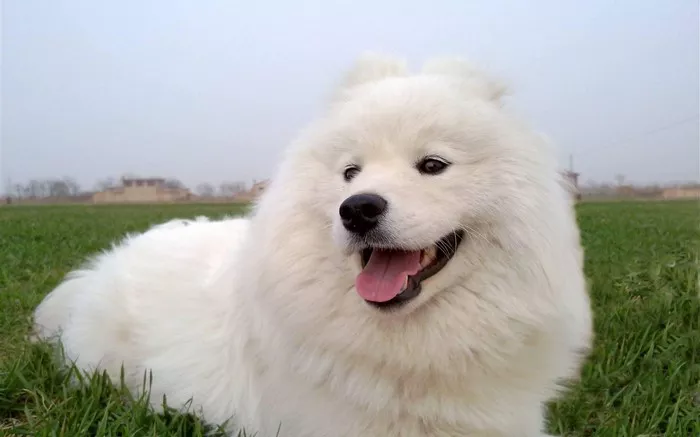As a responsible pet owner, it’s important to provide your Japanese Spitz with the right amount of food to maintain its health and well-being. Feeding your Japanese Spitz too much or too little can lead to a range of health problems, including obesity, malnutrition, and digestive issues. In this article, we will explore how much food a Japanese Spitz should eat and the factors that can affect its food intake.
Understanding Japanese Spitz
Before we delve into how much food a Japanese Spitz should eat, it’s important to understand the breed and its nutritional needs. Japanese Spitz is a small dog breed that is known for its high energy levels and playful nature. Japanese Spitz requires a diet that is rich in protein, fat, and carbohydrates to maintain its active lifestyle.
To provide your Japanese Spitz with the right amount of food, you should choose a high-quality dog food that is specifically formulated for small dog breeds. The dog food should be rich in animal protein, healthy fats, and complex carbohydrates. It should also contain essential vitamins and minerals to support your Japanese Spitz’s overall health and well-being.
Factors that Affect Food Intake
The amount of food a Japanese Spitz should eat can vary depending on several factors, including:
Age
The age of your Japanese Spitz can affect its food intake. Puppies require more food than adult dogs, as they are still growing and developing. As your Japanese Spitz ages, its food intake may decrease, as it becomes less active and its metabolism slows down.
Activity Level
The activity level of your Japanese Spitz can also affect its food intake. Japanese Spitz that are more active and energetic may require more food than those that are less active. If your Japanese Spitz participates in activities such as agility or obedience training, it may require more food to maintain its energy levels.
Weight
The weight of your Japanese Spitz can also affect its food intake. Overweight Japanese Spitz may require less food, while underweight Japanese Spitz may require more food. It’s important to monitor your Japanese Spitz’s weight and adjust its food intake accordingly to maintain a healthy weight.
Health Conditions
Certain health conditions, such as diabetes or thyroid problems, can affect your Japanese Spitz’s food intake. If your Japanese Spitz has a health condition, it’s important to work with your veterinarian to determine the appropriate amount of food to feed your dog.
How Much Food Should a Japanese Spitz Eat?
The amount of food a Japanese Spitz should eat can vary depending on the factors mentioned above. As a general guideline, adult Japanese Spitz should be fed 1/2 to 1 cup of high-quality dog food per day, divided into two meals. Puppies may require more food, as they are still growing and developing.
It’s important to monitor your Japanese Spitz’s weight and adjust its food intake accordingly. If your Japanese Spitz is gaining weight, you may need to decrease its food intake. If your Japanese Spitz is losing weight or appears underweight, you may need to increase its food intake.
Feeding Tips for Japanese Spitz
Here are some feeding tips to keep in mind when feeding your Japanese Spitz:
Choose a High-Quality Dog Food
To provide your Japanese Spitz with the right nutrition, you should choose a high-quality dog food that is specifically formulated for small dog breeds. Look for dog food brands that list animal protein as the first ingredient on the label and contain essential vitamins and minerals to support your dog’s overall health and well-being.
Monitor Your Japanese Spitz’s Weight
It’s important to monitor your Japanese Spitz’s weight and adjust its food intake accordingly. If your Japanese Spitz is gaining weight, you may need to decrease its food intake. If your Japanese Spitz is losing weight or appears underweight, you may need to increase its food intake.
Divide Meals into Small Portions
To prevent overeating and digestive issues, you should divide your Japanese Spitz’s meals into small portions and feed it two to three times a day.
Avoid Table Scraps and Human Food
Table scraps and human food can be high in fat, salt, and sugar, which can lead to obesity, diabetes, and other health problems in dogs. To provide your Japanese Spitz with a healthy and balanced diet, you should avoid feeding it table scraps and human food.
Conclusion
In conclusion, feeding your Japanese Spitz the right amount of food is essential to maintain its health and well-being. The amount of food a Japanese Spitz should eat can vary depending on several factors, including age, activity level, weight, and health conditions. As a general guideline, adult Japanese Spitz should be fed 1/2 to 1 cup of high-quality dog food per day, divided into two meals. It’s important to monitor your Japanese Spitz’s weight and adjust its food intake accordingly to maintain a healthy weight. By following these feeding tips, you can help ensure that your Japanese Spitz stays healthy and happy for years to come.


